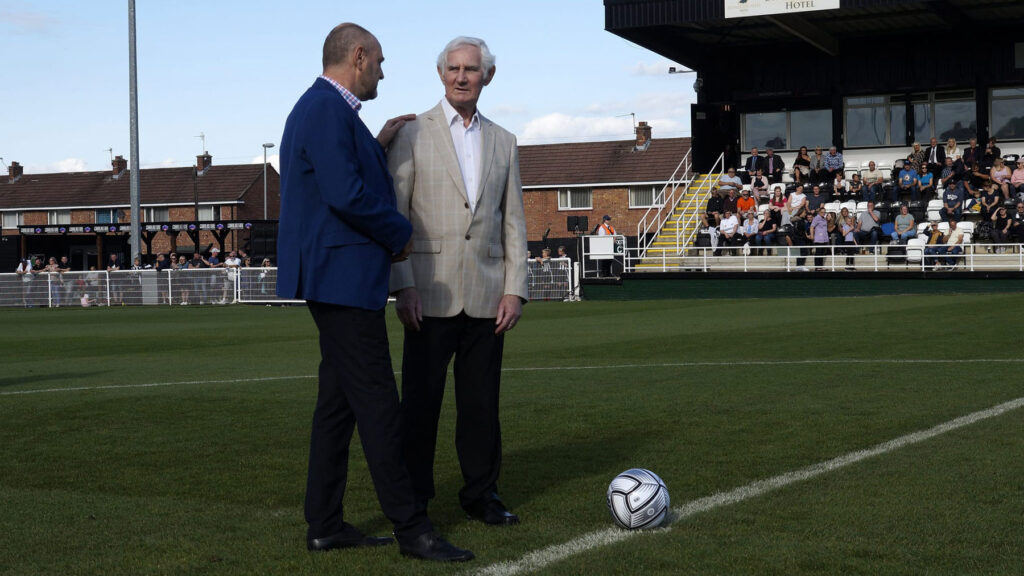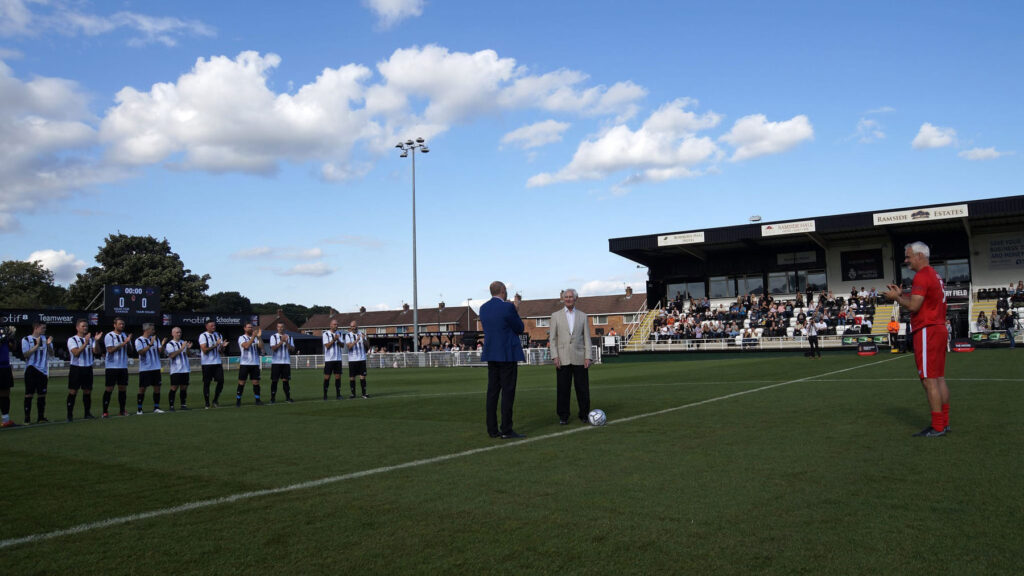Everyone at Spennymoor Town was deeply saddened to learn of the news that former player Bill Gates at the age of 79 on Saturday.
Bill, an England Youth Team captain, wore the Spennymoor United shirt as a teenager before going on to spend his entire professional career in the colours of Middlesbrough after debuting in 1961.
He went on to make over 300 appearances for The Teessiders before retiring at the age of 30 and going on to set up a successful sports shop business in Middlesbrough which expands to stores across the region.
Sadly, Bill was later diagnosed with Chronic Traumatic Encephalopathy (CTE) and, as a result, had been living with dementia during the latter years of his life.
However, his diagnosis inspired the formation of the charity, Head for Change in 2021, which was founded by Bill’s wife, Dr Judith Gates.

Spennymoor Town was honoured to host the first adult football match to be played with heading restrictions later that year at The Brewery Field.
Bill was our honorary guest on the day, officially kicking-off the exhibition match in which a number of former professionals played and widescale media attention was attracted.
The event was repeated with similar success last year, as Dr Gates continued to spread awareness around the link between football and neurodegenerative disease.
More recently, Dr Gates and their son Nicholas, have founded Head Safe Football, a new charity to further promote the risks, and to help more people prevent and protect themselves against CTE.

“We were all very sad to hear the news of Bill’s passing over the weekend,” said Club Chairman, Brad Groves.
“Bill’s story and his courage in the face of his diagnosis has inspired so many people over the last few years and we were privileged to welcome him and his wife to The Brewery Field for those very special matches.
“Our thoughts and sincere condolences are with Judith, along with the rest of Bill’s family and friends at this sad time.
“We hope they can take comfort from knowing that his story has no doubt helped – and will continue to help – so many people as we continue to learn more about sports-related neurodegenerative disease.”


